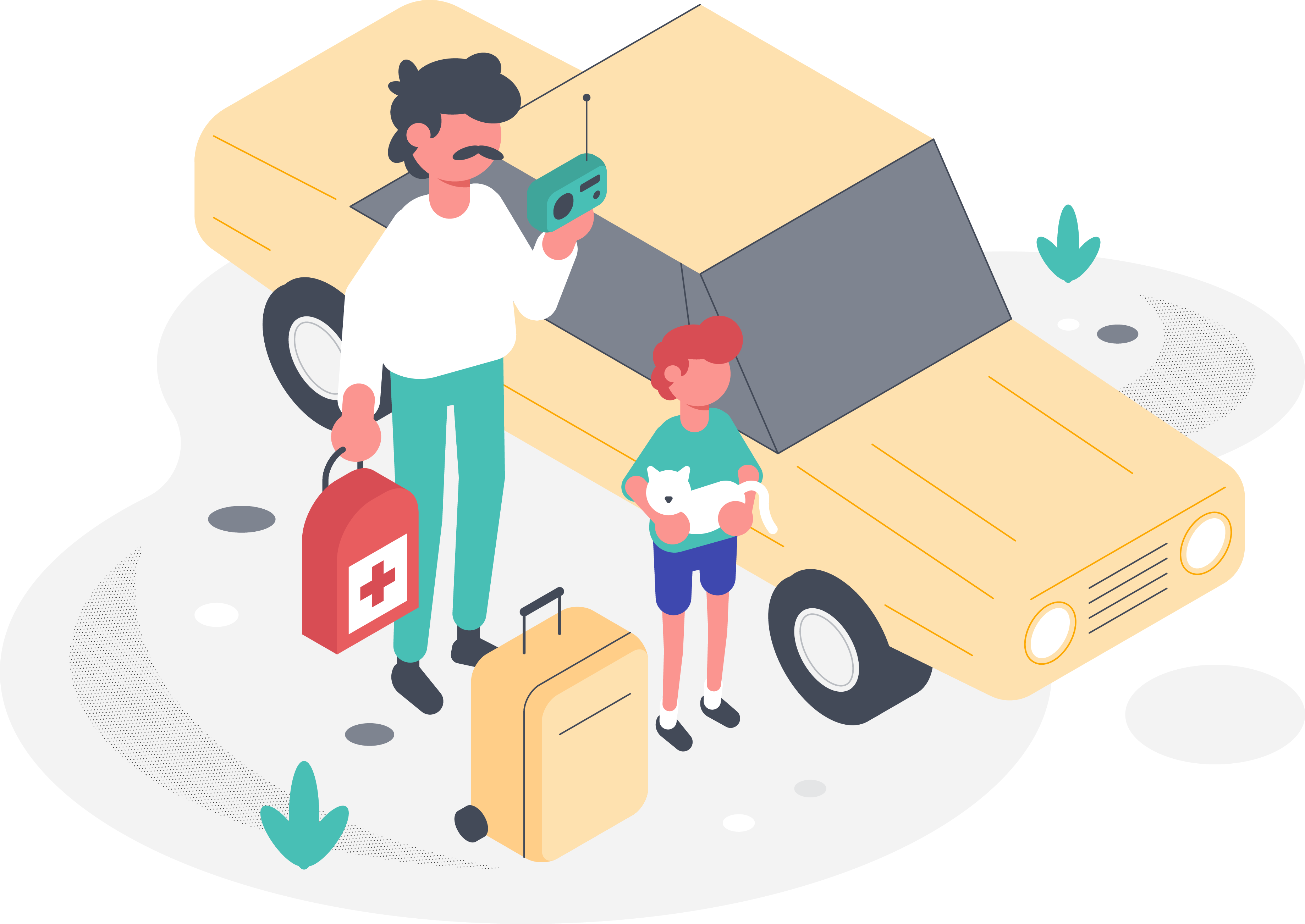Be prepared
Flood events might only happen once or twice per year but disaster readiness should be something that you think about year-round. Flooding can occur rapidly – storing key documents and resources on-hand will ensure that you’ll have the best possible chance at keeping your household safe and recovering quickly.

Well before a flood
Well before a flooding event happens, you should:
- Determine reliable news sources and review your community’s emergency warning system. Keep a list of television and radio stations that you can tune into for real-time updates on evolving conditions. Keep in mind that not all news sources will be available during large-scale disasters. Stay apprised of emergency warning systems in place just in case. Knowing where information will come from in emergencies can save you crucial time.
- Obtain information about your evacuation routes and shelter options. You may have to evacuate your home at night in dangerous conditions. Knowing where you’re supposed to go and how to get there ahead of time can keep you safe.
- Write a communication plan. During emergency events you may or may not have access to the internet and phones. It’s important that you and your family members memorize key phone numbers, have a plan for contacting each other, and know where to meet if you can’t reach each other. It’s advisable to designate an out-of-town contact person that can help coordinate loved ones who have spotty access to communication.
- Create a go-kit. If you have to leave your home during a flood emergency, it will likely be in a rush and possibly in a low-visibility situation. Create a backpack kit ahead of time with key documents and survival tools in order to lessen the stress of evacuation. To get you started, Ready.gov has some tips for creating a comprehensive disaster kit.
During a flood event
If a flood event occurs and you need to leave your home, here are a few key actions you should take:
- Grab your go-kit and documents. If you’ve prepared a go-kit ahead of time, remember to take it with you. If you haven’t, make sure to gather important documents (like passports, birth certificates, home deeds, etc…), important medications, and any supplies you think you might need in the near future.
- Secure your property. When evacuating, it’s often difficult to determine how long you’ll be gone. Before leaving your home, remember to make sure that your property is secured. If you think your house might get flooded, elevate valuables and delicate items. Shut off your utilities before you leave so that your home is not at risk for a gas leak or fire. If you have yard furniture or other outside items that might blow away, secure them before leaving.
- Take your pets. Given that situations can evolve quickly, your pets could be at great risk if you leave them in your home when you evacuate. If you can, take them with you to ensure that they stay safe.
- Avoid flooded areas. If you can, avoid driving or walking through flooded areas. Visual assessments of depths and current speeds are often deceptive -- water might be deeper or be moving faster than you expect. Very small amounts of water can still destabilize you (it only takes 6” of water to knock a person over, and 2’ of water to move a car!). Tread carefully.
- Monitor the situation. After evacuating, monitor the situation from a safe distance. Tune into your local news stations for up-to-date information.
After a flood event
- Stay away from flood waters. Flood water comes into contact with roads, drains, septic systems, and other surfaces. As a result, it can contain hazardous materials that might be harmful to your health.
- Make sure that areas are secure before returning. Sometimes residents make the mistake of returning to their homes too soon, when they’re still at risk for injury or loss. It’s a difficult judgement call to make, because you’re probably eager to assess damage and return to your life, but take a moment to assess security before going back. Only return if authorities indicate that conditions are safe.
- Identify financial options for rebuilding. If your property is damaged and you want to rebuild or repair it, there may be rebuilding/relief funds available to you. Contact us for questions about existing resources.